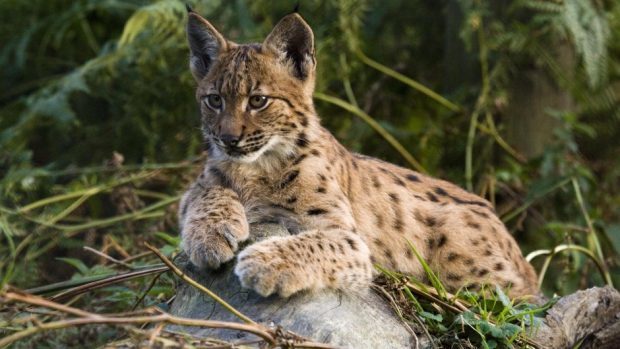Conservationists in the Highlands have welcomed a bid to reintroduce lynx to Britain as an opportunity to control deer numbers and boost the economy.
An application has been made to reintroduce the carnivore for the first time in more than 1,000 years, on a trial basis.
The Lynx UK Trust has applied to Natural England for a five-year trial involving six Eurasian lynx in the Kielder Forest in Northumberland.
International experts have spent a year planning the reintroduction, consulting with local communities and businesses.
The findings have been submitted to Natural England, the agency responsible for licensing species reintroductions in England.
Lynx were mooted at one stage as a possible feature of the Alladale Estate in Sutherland, where multimillionaire owner Paul Lister has a broader vision of reintroducing wolves and bears within a “South African-style game reserve.”
Speaking yesterday, he ruled out lynx on his 23,000-acre estate due to its lack of trees. But he was inspired by the Kielder proposal.
“Bringing lynx into the UK would be a great thing,” he said. “But I hasten to add we have to have in place some scheme that will compensate for livestock losses because it’s inevitable that some of the prey that lynx would eat would be sheep.
“Every bit of news about large carnivores in Britain is good news because it helps us in the long term.”
After more than a decade of planning, Mr Lister intends consulting this year on his long-held proposals.
Beauly-based naturalist Sir John Lister-Kaye is equally excited, saying yesterday that there was a strong case for reintroducing the lynx.
He said a similar initiative at Acebuche in Spain had been successful without impacting humans or livestock.
Susan Davies of the Scottish Wildlife Trust said: “Their return to Scotland’s countryside could help to restore the balance in our natural ecosystems. There are also widespread potential benefits for both forestry and tourism.”
It is believed lynx were wiped out in Britain about 1,300 years ago by fur hunters.
Successful reintroductions mean there are now more than 10,000 lynx in Europe.
